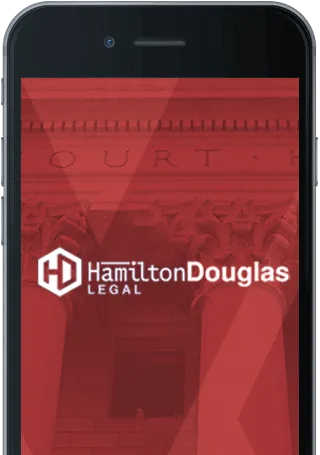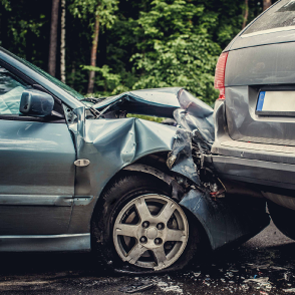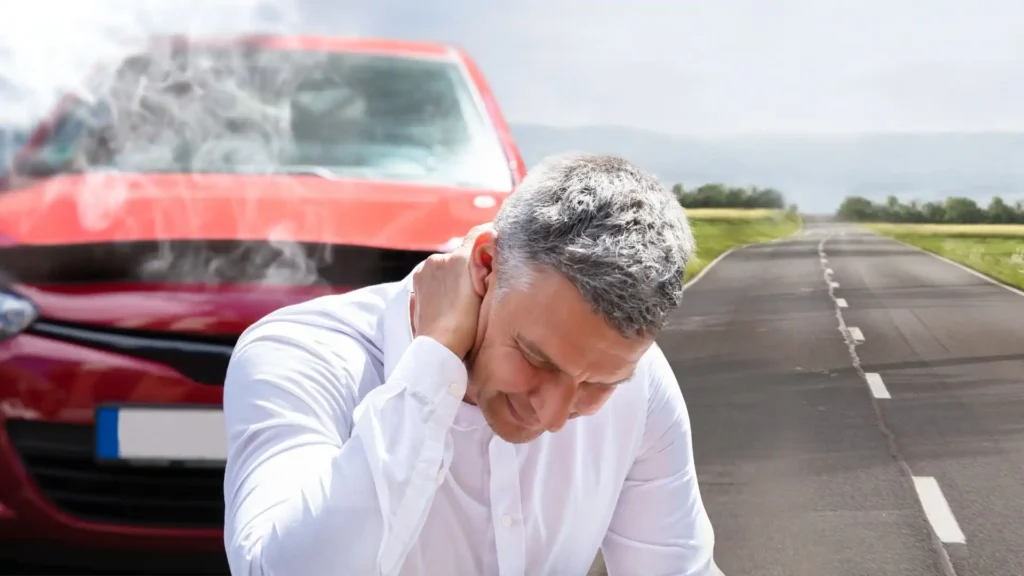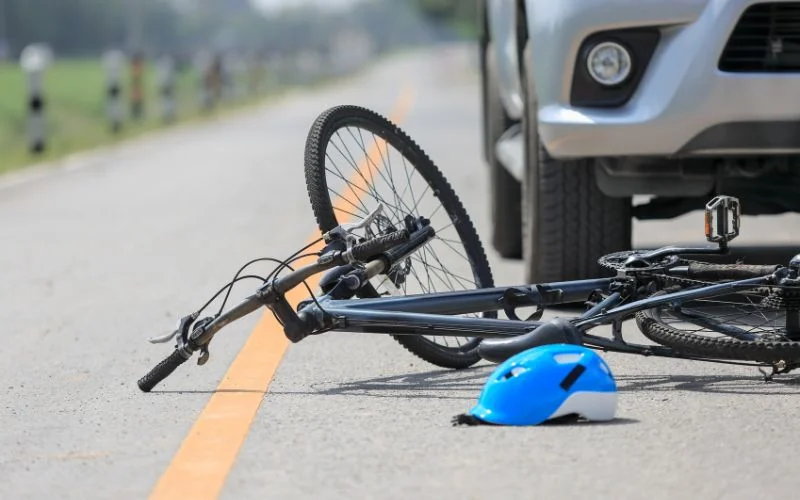What Are The Legal Requirements When A Road Traffic Accident Happens?

Sarah John's
Legal Writer
Road traffic accidents are an unpredictable part of life for every road user. Sometimes they are the result of bad weather, such as ice or snow and other times they result from driver errors, such as speeding or inattention.
A road traffic accident can have a great impact on your life, sometimes leading to long-term or permanent consequences. If you suffered an injury in an accident, you may be eligible for road traffic accident claims in Scotland.
Table of Contents

Get In Touch With Your Local Office:
With local knowledge and a national network of experts, we have the experience you can count on.
The Law On Road Traffic Accidents:
In Scotland, the Road Traffic Act governs the laws of road traffic accidents. According to these laws, if you have been involved in an accident, stop at the accident scene, check on others, and exchange information.
- Report injuries and damage to property to the authorities
- Do not admit liability
- Carry valid insurance
- Drive carefully to ensure road safety
What Is Section 170 Road Traffic Act?
Section 170 of the Road Traffic Act is a crucial law in Scotland. It sets out the duty for drivers to stop and give information after a traffic accident. The law emphasizes the need to focus on safety, share necessary details, and report accidents to the authorities.
Under Section 170, if road traffic accident results in property damage, personal injury, or animal injury. The driver must stop their vehicle; no matter how minor the harm or injury may appear, the law requires an immediate stop.
Once stopped, the driver must provide any necessary help to anyone in need. They must also provide their name and address to anyone who makes a reasonable request. Additionally, they must provide the vehicle identification number and the name and address of the vehicle owner (if they are not the owner ).
If the accident involves another person’s property, such as a parked vehicle or a fence. The driver must immediately try to find the owner or report the accident to the police within 24 hours. In cases where an injured person requires medical attention, the driver must help and, if possible, notify the police.
Additionally, Section 170 emphasises that drivers should not admit fault or liability at the scene of an accident. The details of an accident are usually not not clear at first, it need detailed investigation. Admitting fault at the scene of the accident complicates the situation and make the investigation harder.
Failure to follow Section 170 can result in severe penalties. A driver can faces fines and points on their licence if they fail to stop at the site of an accident. Give false information, or fails to report an accident within the required timeframe, they may face fines and licence points. Failure to stop and report an accident can lead to a criminal conviction in extreme circumstances.
All drivers in Scotland must be familiar with Section 170 of the Road Traffic Act and comprehend their responsibilities during a traffic collision. By abiding by the law, drivers can help ensure the safety of all road users, safeguard their legal rights, and fulfil their responsibility as road users. Remember that road safety is a group effort, and knowing and abiding by the law is essential for safe driving in Scotland.
What To Do If You're Involved In A Road Traffic Collision?
If you are involved in a road traffic collision in Scotland, you must take certain precautions to ensure everyone’s safety and fulfil your legal responsibilities. Remember to maintain composure and concentration, even in stressful situations; here is a guide on how to proceed:
Stop Immediately: After being involved in an accident, you must immediately stop your vehicle at the accident site. No matter how minor or insignificant the collision may appear, the law requires you to stop.
If you ever find yourself in a similar situation, take a deep breath, remain composed, and stop your vehicle as soon as possible. Stopping at the scene is not only a legal requirement but also a means to ensure everyone’s safety and prevent further damage.
Check for Injuries: After stopping your vehicle at the collision site, the next step is to check for injuries. It is of the utmost importance to ensure your and your passengers’ safety and the safety of others involved.
Take a moment to evaluate your condition; Are you feeling alright? Check yourself for any pain and discomfort. Then, if you have any passengers, focus on them; check to see if they have any injuries.
If you or anyone of your passengers is injured, seek immediate medical attention; do not hesitate to dial 999 to request an ambulance.
You might not feel some injuries, as adrenaline and shock can conceal pain or discomfort. So it is best to seek medical attention even if you are currently feeling fine.
Warn Others: After stopping your vehicle and checking for injuries , the next step is to warn others of the accident. Safety is of the utmost importance, and alerting other road users can help prevent more accidents from happening at that time.
If your vehicle is still in a position that poses a risk to others, such as blocking the road or causing an obstruction, activate your hazard lights. This will alert approaching vehicles to potential danger and remind them to proceed with caution.
If you have warning triangles or hazard cones in your car, place them at a safe distance from where the accident occurred. This proves an additional warning and establishes a buffer zone and allows other drivers to adjust their driving.
It is important to note that warning others about the accident is not merely a courtesy but a legal obligation.
Check Other parties: The next step is to check on the parties involved in the accident. Not only is it the proper thing to do, but it also demonstrates that you are a responsible and considerate road user.
If other vehicles or people are involved in the accident, approach them with caution and compassion. Determine whether they are alright and whether they require medical attention. If someone is severely injured, do not hesitate to dial 999 and request an ambulance immediately.
It is essential to maintain composure and remain composed during this time. Accidents can be overwhelming, but staying calm and considerate can help create a safer environment for everyone.
Some people may be in shock or distress; therefore, be patient and understanding. In such stressful situations, reassuring words and compassionate behaviour can make a difference.
While helping other people involved, avoid engaging in arguments or assigning responsibility. It is inappropriate to discuss who may be at fault for the collision at this time. Focus instead on assuring the health and safety of everyone at the scene.
As you check on the other individuals, be aware of potential dangers, such as fluid leaks or broken glass. Safety is of the utmost importance for everyone involved, so it is crucial to exercise caution when helping others during an accident.
Exchange Information: The next stage involves exchanging information with the other involved parties. This phase is essential for processing insurance claims and addressing any legal issues that may arise due to the accident.
Exchange information with courtesy and cooperation. Here is what you must provide, as well as what you must obtain from the other parties:
- Your Information: Provide the other parties with your name and address. Additionally, please provide your vehicle’s registration number. When providing this information, it is crucial, to be honest and accurate.
- Insurance Information: Share your insurance details with other drivers. Share your insurance provider’s name and policy number with others. Make sure to collect the same information from the other involved parties.
Collect Witness Details: After taking care of immediate concerns the next step is to collect witness information if there were any witnesses. Witness statements can act as a proof of what happened and dispel any ambiguity surrounding an accident.
Approach witnesses with courtesy and request their names and contact information. During this procedure, be respectful and understanding, as they may also be emotionally unstable. If they want to give a statement, they should write down or recall what they saw and heard during the collision.
Collecting witness information can help confirm your account of the events. It can also provide more insight into how the accident happened. These statements can be helpful when communicating with insurance companies or if a legal issues arises.
Remember to express gratitude to the accident witnesses for their assistance. Their willingness to come forward and share their insights can have a greate impact on your claim’s process.
Notify the police: If you have been involved in a traffic collision in Scotland that resulted in injuries, fatalities, or significant property damage you must notify the police immediately. In such circumstances, it is a legal requirement to contact the authorities.
Provide the police with the necessary information about the accident. This might include the location, the number of parties involved, and any injuries. They will advise you on the next steps once they have gathered all the necessary information.
If the police have been notified and you do not need immediate medical attention, please wait patiently for their arrival. They will investigate and write a report detailing the accident’s circumstances.
Even if the accident is minor and there are no injuries or significant property damage, it is still necessary to notify the police within 24 hours. You can provide the required information at a police station or through their online reporting system.
Notifying the police is essential for a variety of reasons; it ensures that an impartial investigation takes place. Which can help in determining the cause of the accident and establishing liability. The police report can also be useful during the claim process and addressing potential legal issues arising from the collision.
Inform Your Insurance Company: Regardless of whether you want to make a claim, it is imperative to notify your insurance company about the accident as soon as possible. Contacting your insurer as soon as possible is a crucial step in responsibly handling the accident’s aftermath.
When reporting the accident to your insurance provider, be honest and provide all relevant information. Share the date, time, and location of the accident, as well as the names and contact information of the other parties involved. If there were any witnesses at the scene also share their details.
Describe how the accident happened, and if you have it, share any documentation you acquired at the scene, such as photographs or videos. Being honest and cooperative with your insurer will aid in facilitating the management of any potential claims.
If applicable, your insurance provider will walk you through the next steps and explain process of making a claim. Even if you do not intend to make a claim, you must notify the insurer, as failure could affect your future coverage.
Document the Scene: In Scotland, if you are involved in a road traffic collision, and it is safe to do so, you must document the scene. Collecting evidence and details about the accident can in insurance claims and any potential legal issues that may arise.
Take pictures or videos of the accident site if you have a mobile phone or camera with you. Photograph the positions of the involved vehicles, any visible vehicle damage, and any relevant road conditions or traffic signs.
Documenting the scene may also involve taking notes of any road markings, tyre marks, and road debris. These details can help in reconstructing the events leading up to the accident.
Don’t Admit liability: It is imperative that you do not admit fault at the site of a traffic collision. Keep in mind that the details of the collision may not be immediately apparent. Prematurely admitting fault could complicate matters in the future.
Even if you believe you may have contributed in some way to the accident, you should avoid admitting responsibility. Instead focus on ensuring everyone’s safety, exchanging information with the other parties, and, if possible, documenting the scene.
Admitting fault at the scene can have serious consequences, particularly for insurance claims and legal proceedings. The investigation and determination of responsibility will be based on the evidence, the accounts of all involved parties, and the testimony of any witnesses.
Provide the police and your insurance company with accurate information about the accident. However, avoid accepting responsibility before a thorough analysis of the facts.
By following these procedures, you can respond appropriately to a traffic accident. Remember that obeying the law and putting safe
DEDICATED CLAIMS ADVISORS
Our dedicated claims advisors are always available to offer free legal advice.
100% NO WIN NO FEE CLAIMS
All our claims are processed on a No Win No Fee basis; you pay nothing if you lose.

MILLIONS SECURED IN DAMAGES
To date, we have secured millions in damages.
THOUSANDS OF SATISFIED CLIENTS
To date, we have helped thousands of clients recover compensation and continue to do so.
How To Report Your Collision?
You only need to follow a few simple steps to report an accident in Scotland. Call the police immediately if there are injuries, fatalities, or significant property damage. They will guide you through the process of reporting.
Even if the accident is minor and does not meet the above criteria, you should still report it within 24 hours. Visit a police station or use their online reporting system to make a report.
Include the date, time, location, and parties involved in the accident in your collision report. Be honest and cooperative to the police throughout this procedure.
Report Your Case Online:
To submit your case online in Scotland, follow these steps:
- Visit the official Police Scotland website.
- Look for “Report a Road Traffic Accident” or a similar option.
- Provide precise information about the collision, including the date, time, location, and parties involved.
- Describe the event as precisely as possible.
- Submit the inquiry via the Web.
Report It At A Police Station:
To report a traffic accident in Scotland, go to the nearest police station. Include precise information regarding the accident, including the date, time, location, and parties involved. The police will take your report, which will serve as evidence for insurance claims and legal proceedings.

Can’t Work Due To Illness Or Injury?
Use our free online claim check tool and find out in minutes if you have a claim.
What Details Are Required In An Accident?
When reporting an accident in Scotland, the following information is typically required:
- Time and date of the accident.
- The location where the accident.
Information of all parties involved, including drivers, passengers, and witnesses, must provide their names and contact information.
Details about the vehicle, including registration numbers and insurance information.
- A brief account of what happened during the accident.
- Any visible damage to property or vehicles.
- Information regarding injuries sustained by participants.
What Is The Duty Of Care For Road Traffic Accidents?
The duty of care for road traffic accidents in Scotland refers to the legal obligation of all road users to take reasonable precautions to ensure their own and others’ safety on the road. It involves exercising caution, abiding by traffic laws, and being vigilant to avoid accidents.
Road users must always exercise caution, adhere to posted speed limits and maintain control of their vehicles. They should avoid driving while distracted, such as by using a cell phone, and should never drive under the influence of alcohol or narcotics.
The duty of care requires consideration for other road users, including pedestrians and cyclists. All road users must give way to the opposite party when required, use indicators and check blind spots with their mirrors.
In an accident, the duty of care requires an immediate stop at the scene, providing aid, and exchanging information with the other parties involved. This responsibility includes prompt reporting of the accident to the police and insurance provider.
When Should I Call 999?
In Scotland, you should dial 999 for road traffic accident emergencies. If you or someone else suffered injuries in the accident dial 999 immediately. The emergency services, including paramedics and police, will respond quickly to provide the necessary medical care and manage the situation.
Additionally, if there is a fire risk, someone is trapped in a vehicle, or dangerous materials are present, dial 999 immediately. It is essential to remain calm and provide the emergency operator with exact information about the accident’s location and nature so that help can come immediately.
Communicate With Personal Injury Lawyers in Scotland:
If you suffered an injury in an accident and want to make a personal injury claim, contact us at HD Claims. Our vast network of Personal Injury Solicitors in Scotland has numerous excellent individuals specialising in such claims.
They can guide you through the claim process and help you win the maximum compensation. The amount of compensation you will get will depend on the severity of injuries, damage to the property, future consequences, and a few other factors.
If you are worried about solicitors’ fees and don’t want to bear the extra financial burden, then don’t worry, as most solicitors in our panel work on a no win no fee basis. No Win No Fee in Scotland is also called a no win no fee agreement or no win no fee funding.
It is a contract between you and your solicitor stating that you only have to pay the solicitor’s fees if you win your claim; if you lose, you don’t have to pay.
Easy Ways To Get In Touch
We are here to help. Give us a call, request a call back or use our free claim check tool to get in touch with our friendly legal team. With local knowledge and a national network of experts, we have the experience you can count on.





